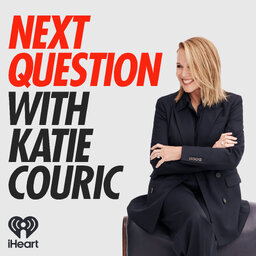The pandemic anniversary: What we’ve learned about health care, science, and ourselves
On March 11, 2020, the World Health Organization declared the coronavirus a pandemic. And, after watching the slow tidal wave of infections, deaths, and fear consume most of Asia and Europe, Americans finally felt COVID’s impact at home. This totally unknown, novel virus took root, upending our lives. On this week’s episode of Next Question with Katie Couric, we recognize this sobering anniversary of a full year with the pandemic. Three Americans intimately involved with COVID-19 — an ER doctor, an epidemiologist, and a patient — share their experiences in those early, panic-stricken days and months of the spring 2020 to find out just how far we’ve come from and just how much we’ve learned about COVID-19, our healthcare system, science, and maybe even ourselves.
Learn more about this week’s guests:
Fiona Lowenstein, independent journalist and co-founder of the Body Politic Covid-19 support group.
Dr. Jeremy Faust, emergency physician at Brigham and Women’s Hospital and Harvard medical school faculty and editor in chief of Brief19.
Dr. Keri Althoff, associate professor of epidemiology at Johns Hopkins Bloomberg School of Public Health.
Related links:
Sign up for the Body Politic Covid-19 Support Group here.
Body Politic Support Group shop.
A guide to assessing the risks of re-opening activities amid the pandemic.
Learn more about your ad-choices at https://www.iheartpodcastnetwork.com
 Next Question with Katie Couric
Next Question with Katie Couric


